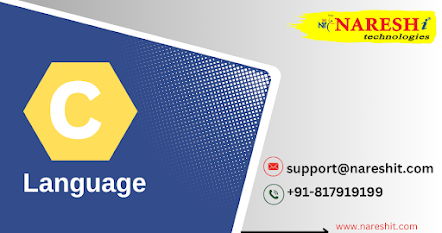- Get link
- X
- Other Apps
- Get link
- X
- Other Apps
C programming language:
The C programming language is a powerful and widely used general-purpose programming language. C was designed for system programming, but it has since been used for a wide variety of applications, including software development for operating systems, embedded systems, games, and applications.
It provides low-level access to memory, making it suitable for programming tasks that require direct manipulation of hardware resources. Additionally, its syntax is relatively simple and concise, which has contributed to its popularity among programmers.
Many modern programming languages, including C++, Java, and Python, have been influenced by C, either directly or indirectly. C remains an essential language for software development, particularly in fields such as system programming, embedded systems, and application development for performance-critical tasks.
Key features that make it powerful in C Language:
Procedural Language: C follows a procedural programming paradigm, which means it organizes code into reusable procedures (functions) that perform specific tasks. This makes it well-suited for structured programming.
Portability: C programs can be compiled to run on various platforms and architectures with minimal or no modification. This portability is facilitated by the availability of C compilers for different systems.
Efficiency: C provides low-level access to memory and hardware resources, allowing programmers to write code that executes quickly and with minimal overhead. This efficiency is crucial for tasks such as system programming and embedded systems development.
Static Typing: C is statically typed, meaning that data types are determined at compile-time. This allows for efficient memory management and type checking, but it also requires explicit declaration of variable types.
Rich Standard Library: C comes with a standard library that provides functions for common tasks such as input/output, string manipulation, memory allocation, and mathematical operations. This standard library simplifies development and makes it easier to write portable code.
Pointer Support: Pointers allow direct manipulation of memory addresses, enabling advanced memory management techniques and efficient data structures like linked lists, trees, and dynamic memory allocation.
Extensibility: C supports the use of external libraries and modules, allowing developers to extend the language's functionality as needed. This makes it possible to leverage existing code and build upon it to create complex software systems.
Close-to-Hardware: C's low-level features make it suitable for programming tasks that require direct access to hardware, such as device drivers, operating systems, and embedded systems firmware.
Community Support: C has a large and active community of developers who contribute to its ongoing development, provide support through forums and online resources, and create libraries and frameworks to enhance its capabilities.

Comments
Post a Comment